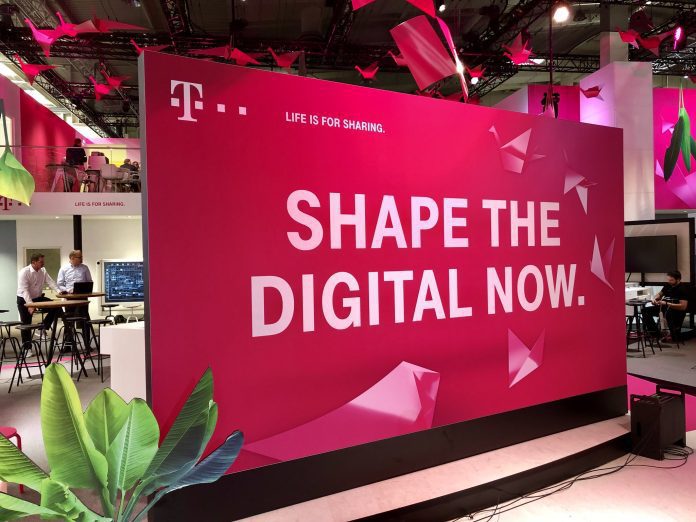Deutsche Telekom has bundled three digital businesses into a single ‘digital solutions’ unit as it seeks to provide medium and large-sized enterprises with a one-stop-shop for the full gamut of digital transformation services, it said at Hannover Messe 2018. T-Systems, the company’s enterprise division, said the new ‘digital solutions’ unit will provide everything “from consulting and co-innovation to the development of technical solutions, their complete integration and operation.”
The move is part of a drive to bring German transformation solutions to German companies, it said. One in three companies in the country wants to open up new business opportunities with digitization, according to Peter Lorenz, senior vice president of global systems integration at T-Systems, and head of the new division. “Large companies have to become very fast and agile, medium-sized businesses are looking for easy access to digitization and a broad range of experience. As Germany’s largest digital provider, we are now bringing both together – Made in Germany,” he said.
The consolidated division combines its Detecon technology consultancy unit with its T-Systems Multimedia Solutions, and related parts of its T-Systems Global Systems Integration business. The three employ 4,000 staff between them and were responsible for 4,000 “digitization projects” in 2017, the company said.
T-Systems chief executive Adel Al-Saleh said: “We’re taking our clients into the digital future. T-Systems has a customer base of world-renowned companies. They entrust us their network, IT and security solutions and are working with us to digitally transform their business. We are realigning our strategy accordingly.”
He added: “With the new portfolio unit, we provide consulting to our clients, develop tailor-made solutions for them, and build and operate them at their request. In doing so, we cover the entire digital transformation chain in one unit.”
According to T-Systems, the division will employ 700 management consultants and digitization experts, 800 industry-specific consultants and specialists, 700 digital platform and architecture experts, over 500 DevOps specialists and around 300 data analysts and big data experts.
“Digital experts are becoming increasingly difficult to find. With 4,800 digital experts, we are bundling our power for digital client projects of all sizes,” said Peter Klingenburg, managing director of T-Systems Multimedia Solutions.
Meanwhile, Deutsche Telekom has agreed a partnership with Microsoft on public cloud services, it said at Hannover Messe. The pair will collaborate is focused on areas: SAP applications, Microsoft Azure and Microsoft 365, artificial intelligence (AI) and mixed reality, and IoT.
Al-Saleh said: “One of the central building blocks in the realignment of T-Systems is our ‘public cloud first’ strategy.” The partnership with Microsoft will “synthesize” the pair’s strengths as a “service provider for the European industry on the one hand and globally operating cloud provider on the other,” he said.
T-Systems will offer preconfigured IoT services based on Microsoft Azure, including remote monitoring for logistics, after sales solutions in the automotive space, and track-and-trace solutions. All features will be customizable, including device and user management, rules engine, event management, simulation, analytics and configurable dashboards.
The open architecture allows additional services, devices and machines to be integrated so that companies can easily and efficiently build complete end-to-end solutions.
Last week, Deutsche Telekom announced plans to launch a data-sharing platform for industrial enterprises, in particular, that allows direct access to information between enterprises providing data, and those scheduled to receive it.

